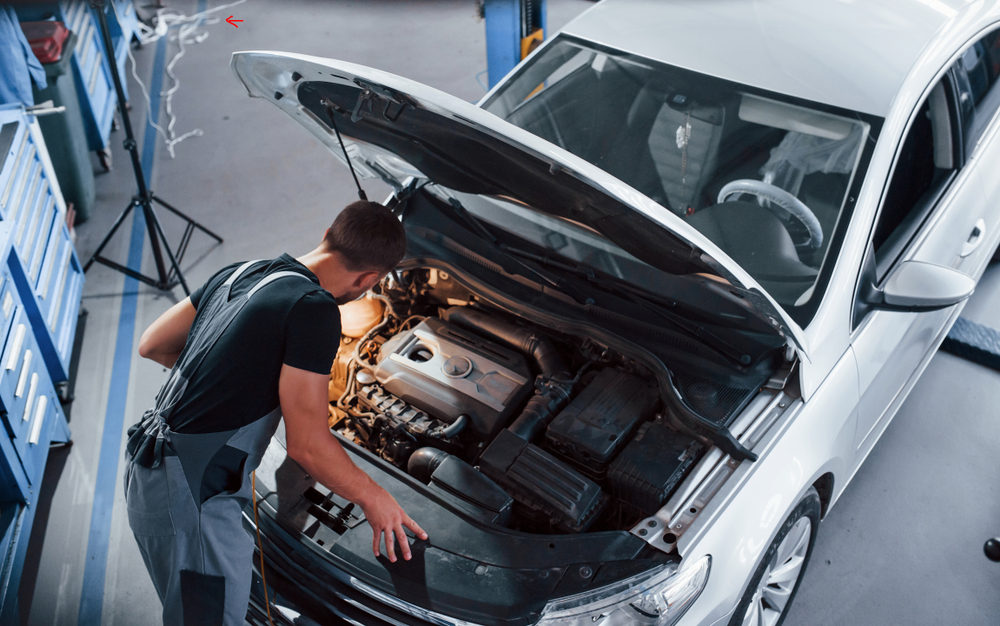
The phrase “I Googled it” lands in repair shops like a dropped wrench. Mechanics hear it daily, and it instantly changes the tone of the conversation. Most customers mean well, but the phrase signals a shift from curiosity to confrontation. It suggests the diagnosis is already settled, even when the symptoms point elsewhere. And when we looked at how often this phrase derails repair discussions, one thing became clear: the problem has nothing to do with the internet and everything to do with expectations built on incomplete information. The tension that follows “I Googled it” often costs time, money, and trust. Here are six reasons why.
1. Online Searches Create False Confidence
The primary trigger behind mechanic frustration is the confidence surge that follows a quick search. When customers lead with “I Googled it,” they often assume the repair involves a simple fix. The confidence feels earned because the symptom seems to match a popular explanation, but automotive systems rarely behave that neatly. And when the real issue proves more complex, the frustration intensifies on both sides.
Shops often see this during electrical diagnostics. A dashboard light blinks, a search result claims it’s a loose gas cap, and suddenly that’s the only acceptable answer. But vehicles don’t follow search rankings. When customers insist their online answer is correct, the phrase “I Googled it” becomes less about information and more about resistance, which slows the diagnostic process.
2. Algorithms Don’t Equal Expertise
Search engines prioritize popular explanations, not accurate ones. That creates a false sense of consensus, even when the information is incomplete. Mechanics know this because the most-searched causes are often the least likely in real-world repairs. And when customers treat the search results as a diagnostic checklist, they unintentionally mislead the person trying to help them.
The phrase “I Googled it” often signals that the customer has already ruled out scenarios the mechanic needs to investigate. This becomes a real issue with intermittent problems. A noise that only appears during acceleration may look like a single cause online, but trained technicians know it could stem from several systems interacting. Algorithms don’t explain that nuance. Mechanics do.
3. Online Fixes Don’t Match Real-World Conditions
Most online diagnoses assume ideal conditions: a vehicle that behaves predictably, a part that fails in a textbook way, and an environment free of variables. Shops rarely see such clean scenarios. Real vehicles age unevenly. Parts fail in strange sequences. Past repairs leave clues that only a physical inspection can reveal.
When someone says “I Googled it,” they often assume the car in front of them mirrors the car described online. But even small differences matter. A slight change in model year, engine type, or previous work shifts the entire diagnostic landscape. Mechanics dread the phrase because it freezes the conversation at the surface level, where the online explanation seems possible but not plausible.
4. Expectations Shift the Moment Costs Enter the Conversation
Sticker shock sets in when customers walk in expecting the fix to cost far less than it actually does. Online forums and video tutorials often showcase repairs done with reused parts, discounted tools, or shortcuts no professional can take. When the actual estimate comes in, tension builds. Mechanics spend the next few minutes explaining why the shop price doesn’t match the internet price, and the phrase “I Googled it” becomes ammunition.
This creates a subtle trap. The customer thinks the shop is inflating costs, while the mechanic knows the online number never accounted for labor, warranty requirements, or safety guidelines. Once expectations shift, trust becomes harder to rebuild.
5. Misinformation Spreads Quickly, Especially About Safety
The internet is full of confident explanations from anonymous users. Some are hobbyists. Some mean well. Many rely on guesswork. Safety-related issues—brakes, suspension, and fuel systems—are especially vulnerable to misinformation because their symptoms can feel generic. A vibration or squeal can mean several things, but online advice often frames them as minor concerns.
Mechanics dread hearing “I Googled it” in these moments because it suggests the customer may dismiss urgent issues as harmless. A driver focused on the internet’s answer may resist a necessary repair, even when the evidence is right in front of them. And that turns a routine job into an argument over risks that should be nonnegotiable.
6. Time Spent Debating Slows Actual Repairs
Shops operate on tight schedules. Every minute spent debating symptoms or disputing online diagnoses pulls attention from the repair process. Mechanics aren’t annoyed because customers researched their problems. They’re annoyed because the phrase “I Googled it” often signals a debate instead of a conversation.
Most shops welcome informed customers. They just need the space to run the diagnostic process without preloaded assumptions blocking each step. When the conversation centers on proving the internet right or wrong, the repair slows, misunderstandings grow, and the timeline stretches longer than necessary.
The Real Issue Behind Those Three Words
The phrase “I Googled it” isn’t the problem. The underlying issue is the belief that a search result can replace hands-on diagnostics. Technology helps people understand their cars, but it also convinces many that they know the exact solution before they walk into the shop. Mechanics dread those words because they predict conflict, confusion, or a stalled repair.
Information is useful. Expertise is essential. And knowing the difference makes every repair smoother.
Have you ever told a mechanic, “I Googled it”? How did it change the conversation?
What to Read Next…
- 10 Things Your Mechanic Can Legally Do Without Telling You
- 9 Signs Your Mechanic Is Overcharging But Legally
- 10 Car Features That Make Mechanics Rich
- 10 Things Your Mechanic Wishes You Knew Before Doing DIY Repairs
- 8 Car Hacks That Mechanics Beg You Not To Try
The post The Real Reason Mechanics Dread Customers Who Say “I Googled It” appeared first on Clever Dude Personal Finance & Money.







